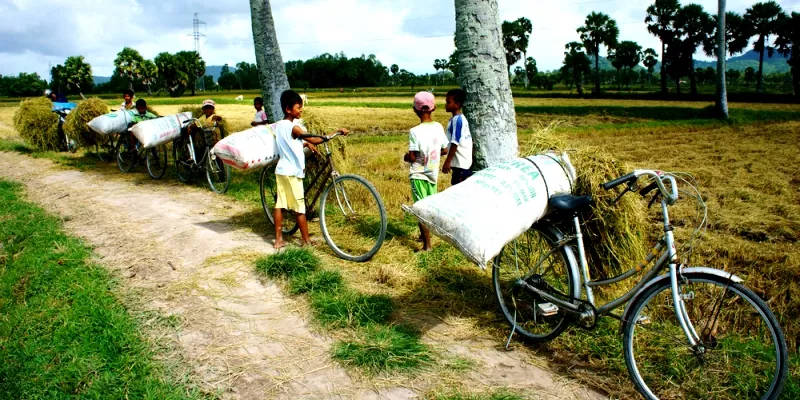Cabinet clears changes to Child Labour Act, kids under 14 can work in family businesses
The cabinet today approved a ban on employment of children below 14 years, except for some family businesses, entertainment and sports activities, while raising the punishment for violations to up to three years of jail. Making child labour a cognizable offence, the fine has also been increased to up to Rs 50,000 for the employers.

The Child Labour (Prohibition and Regulation) Bill, 2012, introduced in the Rajya Sabha, recommended a complete ban on child labour until they finish elementary education, guaranteed under the Right To Education Act. The changes were re-examined by the new government due to chances of misuse and fears that they could upset the social fabric of the country.
Under the new amendments, children can now be employed only in non-hazardous family enterprises, TV serials, films, advertisements and sporting activities (except circus) with a condition that they would be made to do these jobs after school hours.
The government also rejected a proposal to make elementary education compulsory for employment of adolescents in non-hazardous industries, pointing out that a separate law already exists to guarantee education.
The amendments to the Act has relaxed the penal provisions for parents or guardians, who were earlier subjected to same punishments as applicable to the employer of the child. The amendment provides that there would be no punishment for parents or guardians in case of first offence, while a maximum penalty of Rs 10,000 can be levied in case of the second and subsequent offences.
It has, however, increased the terms of imprisonment and fine for the employer. Under the existing law, any violation attracts imprisonment of a minimum 3 months to a maximum of one year for the first offence, while the fine is Rs 10,000-20,000. This has been increased to imprisonment of 6 months to two years and fine of Rs 20,000-50,000 for the first offence. For the second offence, the jail provision has been increased from 6-24 months to 12-36 months.
“We don’t want to redraw the social fabric of Indian society where children learn by participating in work with family elders. We, instead, want to encourage learning work at home as it leads to entrepreneurship,” a government official said.
According to PTI, the current law prohibits employment of children, aged below 14 years, only in 18 specified occupations and 65 processes and regulates the conditions of working of children in other occupations or processes. The new bill provides that employment of children below 14 years will be prohibited in all occupations and processes, except non-hazardous family enterprises, TV serials, films, advertisements and sporting activities.
Besides, the age of prohibition of employment will be linked to age under Right of Children to Free and Compulsory Education Act, 2009. The new provisions are part of the official amendments to the Child Labour (Prohibition & Regulation) Amendment Bill, 2012. The official statement said that while considering a total prohibition on employment of child, it would be prudent to also keep in mind the country’s social fabric and socio- economic conditions.
Justifying the amendments, it said, “In a large number of families, children help their parents in their occupations like agriculture, artisanship etc and while helping the parents, children also learn the basics of occupations. Therefore, striking a balance between the need for education for a child and the reality of the socio-economic condition and social fabric in the country, the Cabinet has approved that a child can help his family or family enterprise, which is other than any hazardous occupation or process, after his school hours or during vacation.”
Besides a new definition of adolescent has been introduced in the Child Labour (Prohibition and Regulation) Act and employment of adolescents (14 to 18 years of age) has been prohibited in hazardous occupations and processes. “These provisions would go a long way in protecting adolescents from the employment not suitable to their age,” it said.
According to census data, India has seen a sharp drop in the number of child labourers in the last decade, down to 4.3 million from 12.6 million. A large number of child labourers, however, continue to work in industries such as matchboxes, fireworks, jute industries, farming, textile and carpet making, where children are in high demand due to their nimble fingers, necessary for intricate designs. Children are also preferred because they can be forced to work long hours with meager pay.
Image Credit : Shutterstock







